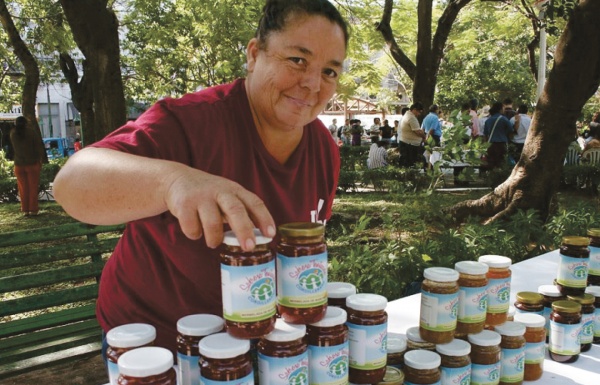Planal: A National Sovereignty, Food Safety And Nutrition Plan
In 2007, Paraguay launched its National Plan for Food and Nutritional Sovereignty and Security (PLANAL, for its Spanish acronym) to tackle on the challenge of food insecurity, a commitment undertaken at the World Food Summit (Rome, 1996) and reaffirmed in the Millennium Declaration, among others. The Plan includes: (1) development of products and markets in the areas of environmental services, ecotourism, art and crafts, forestry, organic products, and ethno- pharmacology; (2) promotion of agro-product value chains and marketing, including technology and storage systems; food processing and preparation; market development, production management and integral trade; (3) productive and commercial partnerships; (4) a fund to subsidize food production expenses and investments and small industrial infrastructure, and financing to improve access to basic services; (5) promotion of the professionalization of the labor force and comprehensive training and employment promotion for youth, in partnership with the private sector. Programs under PLANAL were implemented with a systemic, comprehensive, territorial, participatory, and intercultural approach at the local, departmental and national levels of government.
Meets the criteria established under Health in All Policies:
- Political commitment. PLANAL enjoys a political commitment at the highest level of national government. The Office of the Presidency of the Republic, through its Social Cabinet, supports and oversees this initiative. The departmental governments and locals authorities are also actively involved.
- Separate structure. While if does not have its own structure, the Social Cabinet—which includes representatives from the national Parliament, government ministries and state secretariats, and academia—was strengthened with the appointment of an Executive Secretary and the establishment of a highly trained technical office created to oversee PLANAL at the central level. Two additional levels of participation and consultation were established within the Social Cabinet: the Inter-Institutional Committee and the Public Hearings Office.
- Participation of other sectors. PLANAL is premised on government involvement at the central, departmental, and local levels. Over 30 government agencies and nongovernmental and international institutions are involved: the Technical Planning Secretariat; the Ministries of Agriculture and Livestock, Justice, Labor, Public Health and Social Welfare, Education and Culture, and Finance; the Secretariat of Social Action, the Department of Statistics, Surveys and Censuses; PAHO/WHO; UNICEF; UNDP, AECID, etc. PLANAL also established channels for social participation to gather input from cooperatives, trade unions, and the private sector, indigenous and agrarian organizations, NGOs, and others, through social participation channels.
- Separate budget. While it does not have its own budget, PLANAL is funded by allocations from the relevant ministries. PLANAL has streamlined the organization and coordination of projects and programs in different sectors to optimize those resources and their impact on families.
- Focus on reducing inequity. PLANAL works with households living in poverty and vulnerability and identifies indigenous peoples and rural and urban vulnerable populations as priority groups.
- Intersectoral action. PLANAL requires coordination among various sectors of government, the private sector, and civil society stakeholders to reach its objectives. Through effective coordination, it has reduced the fragmentation that hampers governmental development efforts and policy-making. It rationalized public spending by approving budgets for programs selected through a results-based process and strengthened public-private coordination.
- Public policy. Under PLANAL, institutional regulations were modified and new programs were created, and the effectiveness and efficiency of social and nutrition programs improved.
- Evidence of results. PLANAL instituted an Information System and Observatory to facilitate access to information that improves the efficiency of management, evaluation, and decision-making processes related to food and nutrition policy. The Technical Planning Secretariat created a platform to consolidate a national monitoring and evaluation system for PLANAL's interventions nationwide. PLANAL's main accomplishments include: increased comprehensive health coverage; higher demand for financing for community social investment, in particular to improve the food and nutritional sovereignty and security of groups living in extreme poverty in 66 of the poorest districts; a better supply of basic foodstuffs, drinking water, and health training in indigenous communities; improved family diet, diversification through vegetable gardens, better eating habits, and the application of acquired know- how on food and nutrition in everyday life.
- Social participation. The main instrument for achieving PLANAL programs is territorial management. Each municipal government established mechanisms for citizen engagement in the development of strategic land use plans. Citizens are actively engaged in the process through their designated representatives. This participatory planning method strengthened individual and community capacity to follow-up on local plans, which contributes to their sustainability.
